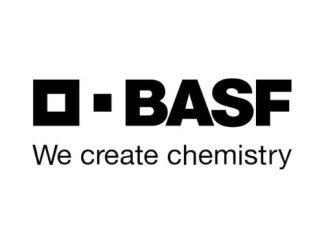The minister of Agriculture, Land Reform and Rural Development, Thoko Didiza, launched a R3,2 billion blended finance scheme (BFS) with Land Bank to assist farmers. The programme will be implemented over a ten-year period.
The Department of Agriculture, Land Reform and Rural Development (DALRRD) announced in October 2022 that the department and Land Bank each invested R325 million per annum. This will effectively result in the creation of a R650 million fund per year that will grow to R1,95 billion by the end of the third year. The funding will be through a blended finance structure, which is a combination of a loan and grant with the focus on commodities as per the Agriculture and Agro-Processing Master Plan (AAMP).
‘The launch of the BFS of Land Bank in collaboration with the DALRRD is a very exciting milestone for farmers,’ said Dr Sandile Ngcamphalala, Grain SA Farmer Development lead, who attended the launch. ‘It is part of the wider AAMP, which is meant to stimulate and drive up to 10% growth in the agricultural sector.’
Affordability and inclusion
Land Bank is a specialist agricultural development finance institution (DFI) that is embarking on a revised strategy. This is aimed at improving the effective balancing of financial sustainability and developmental outcomes in order to meaningfully contribute to the development and transformation of the agricultural sector in South Africa.

The bank achieved a clean audit outcome for the financial year 2022 – providing an indication of its sound governance, management controls and processes to enable the successful implementation of the BFS. ‘Strategic partnerships like this are critical to ensure growth, food security, the development of farmers and the transformation of the agricultural sector, and contribute towards job creation,’ said Minister Didiza.
‘In order to ensure increased affordability and inclusion, and to reduce the risk of failure by new entrants, Land Bank will predominantly follow a blended finance model to support development farmers,’ said Thabi Nkosi, chairperson of Land Bank.
This partnership aims to support the development of small- and medium-scale farmers to participate in the mainstream agricultural economy and the agricultural value chain.
To Dr Ngcamphalala this is also good news. ‘The launch of the BFS implies that Land Bank is back in business to fund South African farmers. The scheme will see the injection of R325 million grant funding annually to Land Bank for the next three years.
‘Even more exciting is the fact that Minister Didiza is committed to supporting and working with Land Bank for the next ten years,’ he continued.
Objectives of the fund
The objective of the fund is to make land and agrarian reform successful by supporting the development, acquisitions and production expansion of qualifying black farmers in prioritised value chains. This is meant to achieve the following goals:
- Economic growth and expansion of the agricultural sector.
- Accelerate land redistribution and wealth creation.
- Job creation.
- Transformation of the sector.
- Increased export.
- Effective land reform and rural development (especially underutilised land).
Access to the scheme
Access to the BFS will be directly through Land Bank. The DALRRD will perform an oversight role, including reporting to all its relevant structures. Furthermore, the received expression of interest from other private banks and engagements is at an advanced stage as part of the goal of broadening access to finance by farmers.
The targeted industries include the following:
- Fruit, nut and vegetable value chains.
- Grains and sugarcane.
- Poultry value chain.
- Pork, beef and sheep value chains.
- Other viable ventures that support the AAMP.
Grants will be provided based on the pre-set DALRRD qualifying criteria.
Important to note is that long-term lease agreements, including permission to occupy, that are longer than the period of funding, will be accepted as adequate security to enable access to funding.
Who qualifies?
- South African citizens with a valid identity document.
- Black-owned and managed farming enterprises that are commercially viable in commodities prioritised in the AAMP.
- In the case of joint ventures, the non-black partner should have 40%, but not less than 26% ownership in the enterprise.
- Enterprises with 10% farm worker profit sharing – the National Development Plan urges that by 2030, no one should go to bed hungry.
- Youth (40% targeted), women (50% targeted), people with disabilities (6% targeted) and military veterans.
Grain SA’s input
‘The funding ratio between the loan and grant was one of the points emphasised at the launch,’ explained Dr Ngcamphalala. ‘It was said that the funding will target production support, including CapEx and OpEx as well as insurance. The grant part of the loan will be capped at R10 million, R10 million and R50 million for small-, medium- and large-scale farmers respectively. Smallholder farmers will access the facility at a 60:40 split between grant and loan. Medium-scale and large-scale commercial farmers will receive the funding at a 50:50 and 40:60 split respectively.
‘Key to accessing the funding was economic benefit criteria including issues of equity, transformation and inclusivity, the BBBEE score of the applying enterprise, personal risk, employment opportunities, food security contribution, localisation of the commodity produced to replace imports as well as the targeted local or international markets. The funding responsibility will rest solely with Land Bank, and as such, applicants will have to fulfil the viability assessment of Land Bank to determine the bankability of the enterprise,’ Dr Ngcamphalala concluded.



















